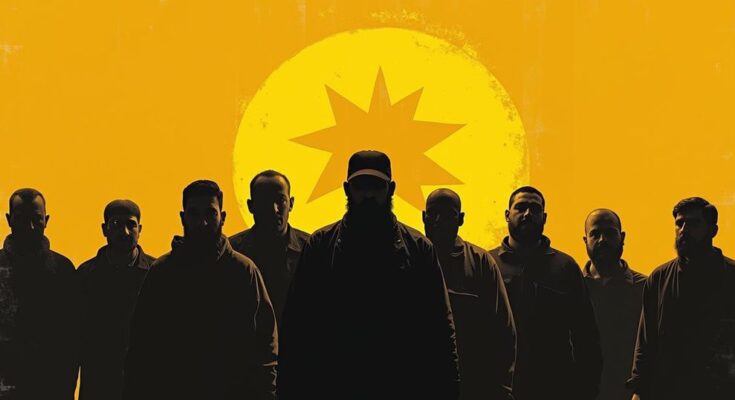Hassan Nasrallah, the leader of Hezbollah, was killed in an Israeli airstrike. Recognized for his early resistance against Israel, his reputation waned following Hezbollah’s involvement in Syria and allegations regarding a significant political assassination. His death necessitates a new leadership for Hezbollah, which will shape the group’s future strategies and its position within Lebanon and the wider region.
Hassan Nasrallah, the longstanding leader of Hezbollah, was confirmed killed in an Israeli airstrike on Beirut, marking a significant escalation in the region’s ongoing conflict. His leadership, which spanned over three decades, saw fluctuations in perception, particularly after the 2006 war against Israel, where he was celebrated as a hero among many, transcending Lebanese borders. However, his subsequent alignment with Iranian interests and direct involvement in the Syrian civil war diluted his image and prompted criticism from various Arab states. Born in 1960 in East Beirut, Nasrallah grew up during politically tumultuous times. Initially involved with the Amal movement, he left to establish Hezbollah in 1982, which galvanized support among Lebanon’s Shia population by adopting an anti-Israel stance and seeking empowerment for his community. His rise to prominence, particularly after becoming Hezbollah’s secretary-general in 1992, was characterized by effective communication, often utilizing the local dialect to resonate with everyday citizens. Nasrallah’s impactful speeches intertwined political and religious themes, solidifying his role as a leader who articulated the grievances of not only Shia Muslims but broader segments of society throughout the Middle East. Despite ongoing challenges, including the backlash from the 2019 protests and the questioning of Hezbollah’s role in Lebanese governance, Nasrallah maintained a significant base of support. As Hezbollah prepares to navigate the aftermath of his assassination, the choice of a successor will be crucial. The decisions made in this transitional phase will likely reverberate throughout the Lebanese political landscape and beyond, reaffirming or challenging the group’s commitment to resistance against Israel and its alignment with Iranian influence.
Hassan Nasrallah had a complex trajectory as the leader of Hezbollah, characterized by an initial rise in popularity due to his leadership against Israel, followed by declining support due to involvement in the Syrian Civil War and accusations regarding Hezbollah’s political maneuvers in Lebanon. His leadership was also marred by investigations into the assassination of former Prime Minister Rafik Hariri, which strained relationships with certain Sunni factions. Despite controversies, he was seen as a pivotal figure for the Shia community and wielded significant influence in Lebanese politics, often viewed through the lens of Hezbollah’s military capabilities and strategic regional alignment.
The death of Hassan Nasrallah poses a considerable challenge for Hezbollah, which has relied on his charismatic leadership and strategic direction for years. While the organization is structured and resilient, the upcoming leadership transition will play a vital role in determining its future trajectory and addressing the emerging dynamics within Lebanon’s political landscape. The implications of his assassination are poised to affect not only Hezbollah but also the broader geopolitical context in the region, emphasizing a critical juncture in Middle Eastern affairs.
Original Source: kashmirreader.com




